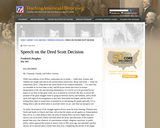
This resource informs students of Frederick Douglas' speech on the Dred Scott decision.
- Subject:
- Social Studies
- Material Type:
- Reading
- Provider:
- Teaching American History
- Date Added:
- 07/06/2017

This resource informs students of Frederick Douglas' speech on the Dred Scott decision.
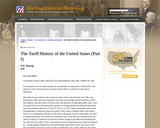
This resource describes the the protective movement and its effect on political event and legislation.
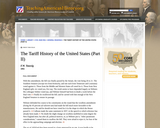
This resource continues the discussion of the the protective movement and its effect on political event and legislation.
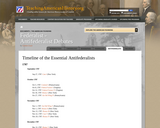
This resource is a timeline of essential Antifederalists.
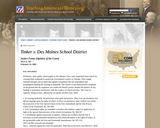
This resource informs students about the Supreme Court case, Tinker v. Des Moines School District. At a public school in Des Moines, Iowa, students organized a silent protest against the Vietnam War. Students planned to wear black armbands to school to protest the fighting but the principal found out and told the students they would be suspended if they wore the armbands. Despite the warning, students wore the armbands and were suspended. During their suspension the students' parents sued the school for violating their children's right to free speech. A U.S. district court sided with the school, ruling that wearing armbands could disrupt learning. The students appealed the ruling to a U.S. Court of Appeals but lost and took their case to the United States Supreme Court. In 1969 the United States Supreme Court ruled in a 7-2 decision in favor of the students. The high court agreed that students' free rights should be protected and said, "Students don't shed their constitutional rights at the school house gates."

Students engage in a Structure Academic Controversy (SAC) about the "War Powers Act", "The War Powers Resolution: After Thirty-Six Years", and "The Constitutional Limitations on the President's Powers" to answer the essential question, "Did the creation of the War Powers Act conflict with Congress's Constitutional power to declare war?"